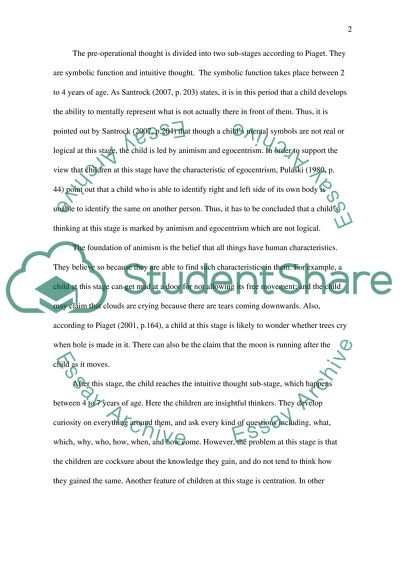Cite this document
(“Early Childhood Development Research Paper Example | Topics and Well Written Essays - 1500 words”, n.d.)
Early Childhood Development Research Paper Example | Topics and Well Written Essays - 1500 words. Retrieved from https://studentshare.org/psychology/1454761-cognitive-development-during-early-childhood
Early Childhood Development Research Paper Example | Topics and Well Written Essays - 1500 words. Retrieved from https://studentshare.org/psychology/1454761-cognitive-development-during-early-childhood
(Early Childhood Development Research Paper Example | Topics and Well Written Essays - 1500 Words)
Early Childhood Development Research Paper Example | Topics and Well Written Essays - 1500 Words. https://studentshare.org/psychology/1454761-cognitive-development-during-early-childhood.
Early Childhood Development Research Paper Example | Topics and Well Written Essays - 1500 Words. https://studentshare.org/psychology/1454761-cognitive-development-during-early-childhood.
“Early Childhood Development Research Paper Example | Topics and Well Written Essays - 1500 Words”, n.d. https://studentshare.org/psychology/1454761-cognitive-development-during-early-childhood.


